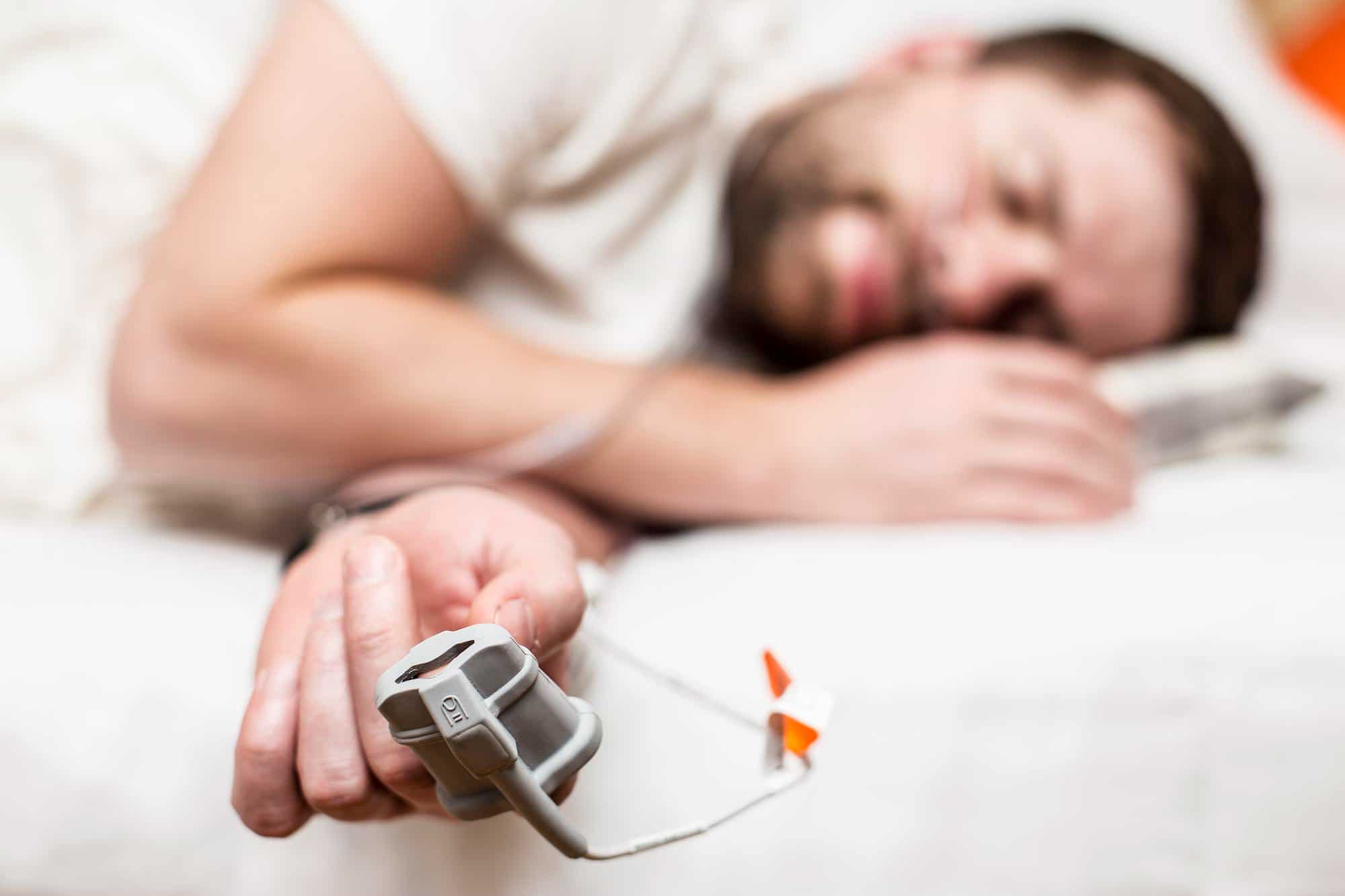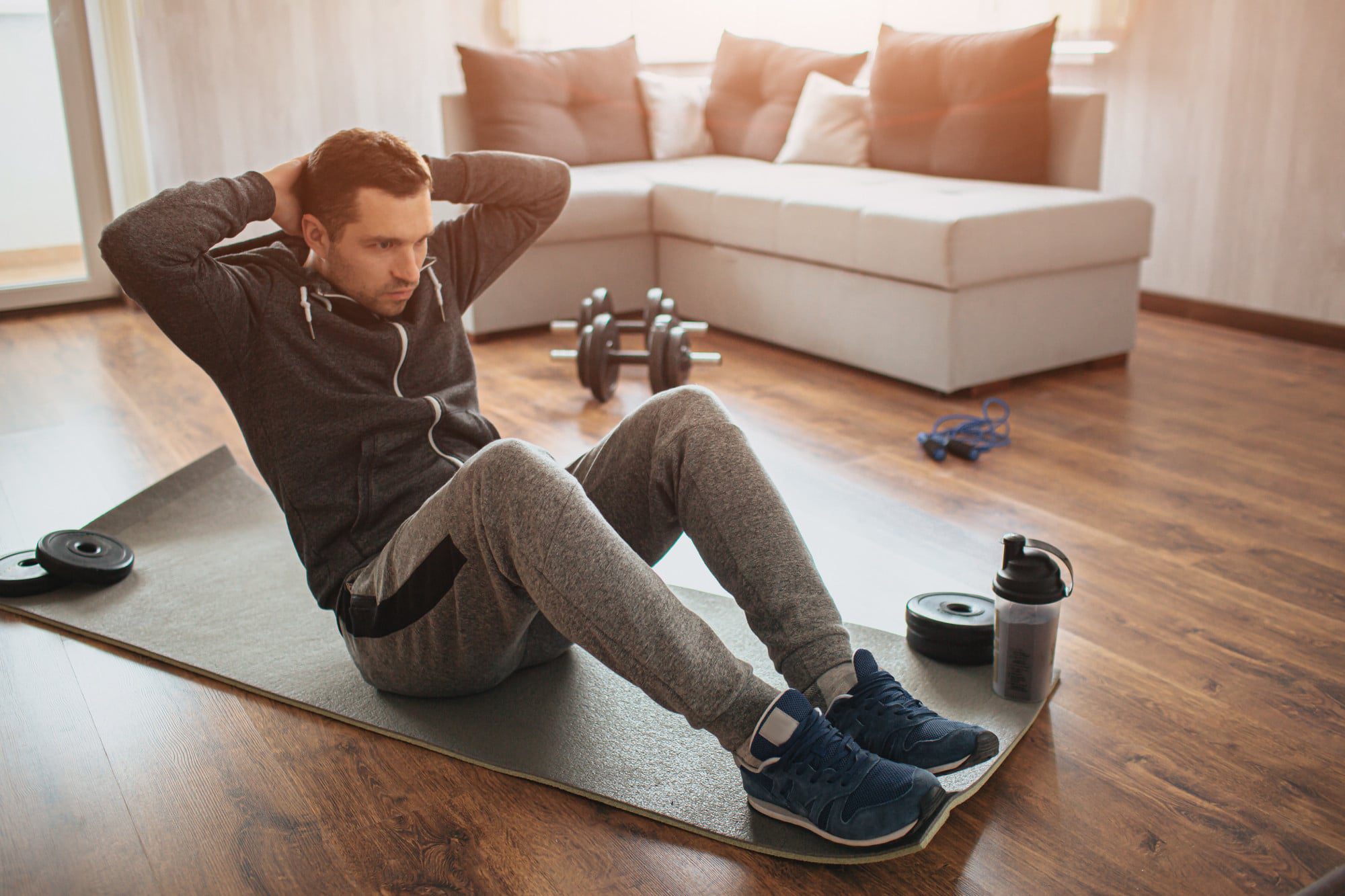
Sleep apnea is a medical condition in which you stop breathing during sleep. Just that simple definition alone is enough to understand that this is a serious matter. Add to that a list of potentially major health complications, and you have a frightening medical condition.
Doctors have a range of options to treat sleep apnea and keep its symptoms minimized. There are machines to help you breathe while sleeping, medications and in extreme cases, surgery. In addition, you can choose to make lifestyle changes that can significantly ease your symptoms and worries.
Exercise is one of those choices and a powerful ally in managing, reducing and possibly eliminating sleep apnea. So let’s see how exercise can benefit your sleep apnea treatment plan.
A Summary of Sleep Apnea
What is Sleep Apnea?
Sleep apnea is a disorder in which your throat muscles are excessively relaxed (obstructive sleep apnea), your brain doesn’t transmit signals that trigger breathing (central sleep apnea), or you have a combination of the two (complex sleep apnea). In any case, you have episodes during sleep where you stop breathing. Common signs of sleep apnea include snoring loudly, struggling to inhale during sleep, waking with a headache, insomnia, feeling sleepy during the day and irritability.
Sleep Apnea’s Effect on Your Health
Sleep apnea comes with a long list of health complications and risk factors. One of the most prominent factors is excess weight and obesity. You could also experience diabetes, high blood pressure, asthma, heart attack, stroke, dementia and even sudden death. Other potential problems include atrial fibrillation and coronary artery disease. In addition, some medications and surgery become more dangerous.
If you stop breathing while sleeping, what might happen before, during, or after surgery?
Treatment for Sleep Apnea
Fortunately, there are several options for treatment, and your doctor can select the method, or combination of methods, that works best for you.
Medical Treatments
Sleep apnea is most often treated with portable machines that help ensure you will keep breathing as you sleep. You wear a mask that provides oxygen while you sleep. You may also find additional relief with medication that helps you stay awake during the day and promotes sleep at night. Surgery can correct conditions that contribute to sleep apnea, such as enlarged tonsils, a lower jaw that is not large enough, an overbite, or a deviated septum.

Lifestyle Changes
There are things you can do to help manage sleep apnea and ease its complications. If you are overweight, losing some of that weight can have a significant, positive effect on your condition. Alcohol weakens throat muscles, so it’s a great idea to avoid that. Try sleeping on your side instead of your back. Also, quitting smoking and taking care of any allergies you may have can help you avoid potential swelling.
Do you know what else you can do? Exercise!
Exercise
Exercise generates energy. Of course, it uses a lot of energy (burns calories), but in return, it gives you stronger muscles, reduced stress, an energized metabolism, mental alertness and better sleep. As a result, exercise can play a significant role in alleviating episodes of sleep apnea. Just keep in mind that exercise is meant to complement, not replace, medical treatment.
Types of Exercise
Almost any kind of exercise can be beneficial in some way. You don’t have to be an athlete and run marathons to benefit from exercise. Even simple, low-impact options can improve your condition. The most important thing is to choose options that match your physical abilities.
Studies have shown that aerobics, or aerobic plus resistance exercises, help reduce the severity of sleep apnea, improve sleep at night and reduce sleepiness during the day. With 30 to 40 minutes of daily activity, cardio routines, such as walking and regular stretching, can produce improvements. Yoga has been shown to improve sleep and reduce sleepiness during the day.
Another study concluded that exercise routines that include vigorous walking and weight training reduced the severity of participants’ sleep apnea by 25%. They also reported less daytime sleepiness and fatigue and clearer thinking.
A different category of exercises involves the areas directly affected by sleep apnea: your mouth and throat. Strengthening the muscles essential for breathing makes them less likely to fail. These oropharyngeal exercises increase muscle tension, which keeps your airway open. You can focus your exercises on the parts causing the problems. For example, exercise your throat if its muscles tend to collapse, or exercise your tongue if it drifts into your throat. Here are some exercises to try
Benefits
Studies show that regular exercise can yield tremendous benefits for reducing sleep apnea. Physically active people sleep longer with higher quality sleep. Their risk of diabetes, certain cancers, cardiovascular diseases and death is reduced, as their insulin resistance and inflammation levels lower. They are even 21% less likely to develop
sleep apnea.
One noticeable and typical effect of exercise is weight loss. As sleep apnea is linked to excess weight, this can be a great benefit. Furthermore, studies suggest that all those other benefits occur even without weight loss.
Conclusion
With machines, medication, surgery and lifestyle changes, people that suffer from sleep apnea have options for treating, managing and hopefully eliminating sleep apnea. Adding exercise to this list boosts your chance for a favorable outcome.
Whether you choose strenuous, moderate, or light exercise, regular practice will benefit you physically. And when you know you can do something to help yourself, it benefits you emotionally as well.





0 Comments